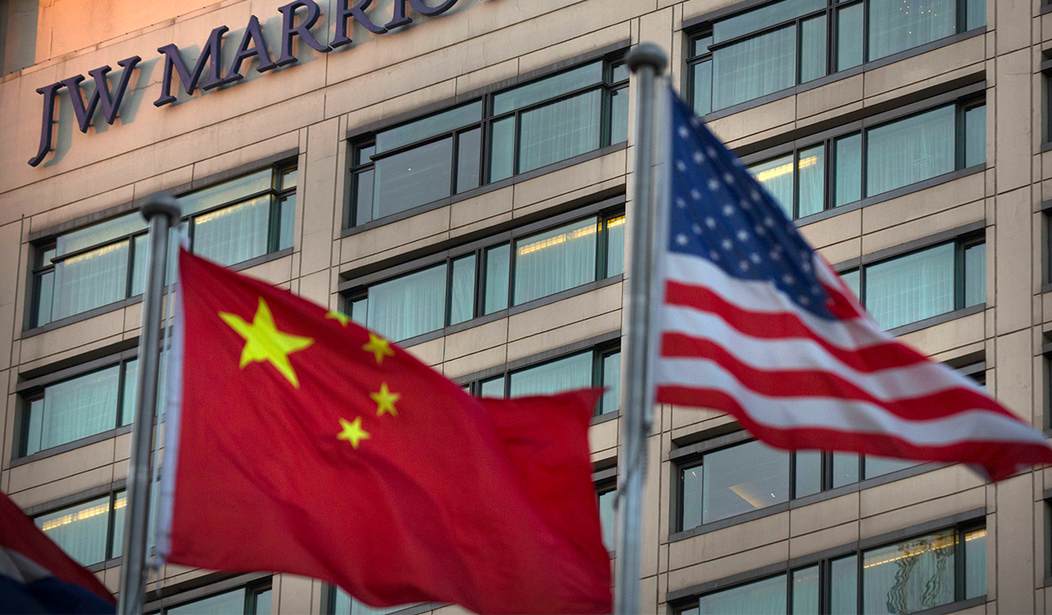Many assumed that “infrastructure week” was finally set to buck its status as a Groundhog Day-esque joke and finally come to a close. However, ongoing negotiations have taken some of the winds out of the infrastructure sails and its status as the potential first major non-COVID legislation of the Biden administration looks to be usurped by the so-called Competition and Innovation Act. Aimed at taking on China through federal investments in technology and science, this bill looks on track to find its way into law. However, throwing money at the problem in the form of this bloated bill won’t stop China’s rise, and lawmakers should instead focus on competition policy that encourages innovation, investment, and growth here in the U.S.
It’s understandable why this anti-China bill has picked up steam quickly with nearly 9-in-10 Americans viewing China as an enemy or competitor. John Cena’s recent embarrassing video kowtowing to China in which he apologized for (correctly) referring to Taiwan as a country is just the latest example that the threat from China is real and multifaceted. No matter the temptation, we should never try to beat China at their own game of state-directed industrial policy. What the United States does better than every other country in the world is free market competition, and there are several ways Congress can strengthen our position on this front.
The first thing policymakers should do is avoid an own-goal. Competition policy has been a frequent conversation on Capitol Hill. With so-called “Big Tech” in the crosshairs, the House and Senate have both called for radical changes to antitrust laws. The consumer welfare standard has been the bedrock of antitrust for over four decades and provides a framework to tie antitrust enforcement to consumer harm. However, a departure from the consumer welfare standard and light-touch approach will only weaken the U.S. economy and make markets more unpredictable for businesses. Calls to break up large and successful technology companies run counter to the goal of ensuring the U.S. remains the global leader. Taking the wrecking ball of antitrust enforcement to a growing sector of the economy neither serves taxpayers well nor our national interests. We are not China and should not have politicians or bureaucrats picking winners and losers.
Recommended
Mergers and acquisitions have increasingly come under fire despite many of these being pro-competitive or competitively benign. Bright line rules on mergers and acquisitions, like proposals from Senator Josh Hawley (R-MO) that would ban any merger and acquisition from a large digital company, are anti-growth and would harm consumers. Similarly, Senator Amy Klobcuhar’s (D-MN) proposal to switch the burden of proof for mergers and acquisitions by requiring the private company, not the government, to prove that the merger is pro-competitive runs contrary to the principles of the American legal system. It’s important to note that these reforms would have top-down repercussions. A 2020 survey found that the long-term goal for 58 percent of startups is to be acquired. Banning mergers and acquisitions both prevents companies from growing and innovating while simultaneously disincentivizing investment in startups that have a failure rate of 90 percent. Without a viable exit strategy, investors would be less likely to invest in American startups.
A competitive environment increases innovation and lowers prices for consumers. To decide if a merger would be anticompetitive, it is critical for regulators to define the relevant market. Some regulators have sought to narrowly define a market to bolster the case for intervention. This is problematic for consumers and can lead to overzealous government action. Likewise, proposals like the Competition and Antitrust Law Enforcement Act that would completely do away with the requirement to establish relevant market definition should alarm those who are hoping to increase U.S. competitiveness with economic rivals like China. Without a fact-intensive market definition, political appointees would have free reign to insert the heavy hand of government and restrict growth beyond an arbitrary standard. Subjective definitions of “bigness” would grant ideologically driven antitrust enforcement to prevent mergers and stymie economic growth. The consumer welfare standard ensures consumer harm is the basis for government intervention and prevents capricious partisan action.
As some decry the size and growth of these companies, the truth is we should want these companies to grow in the U.S. The 2021 Investment Heroes report from the Progressive Policy Institute found that at a time when most U.S. businesses cut back on capital investments during COVID-19, the investments made by the technology, broadband, and ecommerce sector were critical to “keeping people working and propping up the economy.” These capital investments create higher paying jobs and economic growth. While there are reforms that are necessary within these industries — a national data privacy standard most notably — reforms can be made with greater precision and without the radical rewriting of antitrust laws that would undermine our competitive standing.
The U.S. will not beat China at central planning, and we should instead play to our strengths. The pork-laden Competition and Innovation Act may capture headlines, but the money spent will be dwarfed by the investments of the private sector. Politicians will continue to bash companies that they disagree with for short-term political gain, but enacting policies that hamper the free market will inevitably lead to long-term and far-reaching economic harm. Chinese technology companies, like Huawei, that are blacklisted by the U.S. government should offer a stark warning on why we want technology companies based in markets like ours. Lawmakers would be wise to stick to a light-touch approach and ensure the U.S. market remains an attractive option for growing businesses. Beating China starts with smart, consumer-focused competition policy at home.
Will Yepez is a government affairs associate with the National Taxpayers Union, a nonprofit dedicated to advocating for pro-taxpayer policy at all levels of government.

























Join the conversation as a VIP Member